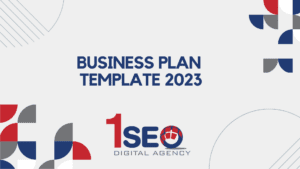Be Online – or Get Used to Being Offlined!
In addition to our traditional weekly Tuesday Blog, which focuses on issues of interest to the Home Services Industry, a 2nd piece reporting on Google’s

Starting a new business is exhilarating, but one of the most significant challenges is figuring out how to market it effectively. With a plethora of options and strategies available, it can be overwhelming. This guide will provide comprehensive, actionable insights to help you navigate the complex world of startup marketing.
Understanding who your target market is forms the bedrock of your marketing strategy. Clearly identifying your ideal customer will help tailor your efforts to those who are most likely to convert. Consider:
Create detailed buyer personas to guide your marketing efforts. These personas will help in crafting messages that resonate and appeal directly to your potential customers.
Your value proposition answers the critical question, “Why should customers choose you?” It’s essential to communicate what makes your product or service unique and how it solves your customers’ problems. A compelling value proposition is clear, concise, and focused on the benefits to the customer.
Setting goals is crucial for measuring success and staying on track. Ensure your goals are:
Short-term wins are essential, but keeping an eye on your long-term vision is equally important.
Your website is often the first impression potential customers have of your business. It should be simple, clean, and focused on your value proposition. Key elements include:
If you lack technical expertise, consider using a website builder like Squarespace or Wix.

Social media is a powerful tool for raising brand awareness and engaging with your audience. However, it’s essential not to spread yourself too thin. Choose 2-3 platforms where your target audience spends their time.
Provide value beyond promotion by sharing informative content, behind-the-scenes looks, and industry insights. Engage meaningfully with comments and messages to build relationships.
Blogging is an excellent way to establish yourself as an authority in your industry. Share insights, tips, and answer common questions. This approach not only helps with search engine optimization but also provides valuable content to your audience.
Building an email list from day one is crucial. Use email marketing to offer valuable content, exclusive deals, and company updates. Platforms like Mailchimp and HubSpot offer free options for smaller lists. Email marketing can nurture leads and turn them into paying customers.
Social proof is vital. Collect early success stories and get permission to feature them as case studies or testimonials. These endorsements can significantly boost your credibility and attract new customers.
Identify non-competitive businesses with a similar customer base for partnerships. Cross-promotions and co-hosted webinars can expand your reach and attract new audiences.
Create a referral program to make it easy for satisfied customers to refer others. Offering incentives can motivate your existing customers to spread the word about your business.
Draft a compelling press release about your launch or early milestones. Target local media and relevant industry publications to get the word out about your startup.
Get creative with low-cost marketing tactics. Use stickers, flyers in strategic locations, and engaging social media campaigns to attract attention without breaking the bank.

Use tools like Google Analytics to track website traffic, conversions, and popular content. These insights will help you understand what’s working and where improvements are needed.
Don’t be afraid to A/B test different headlines, social media posts, or email subject lines. Measure the results to see what resonates best with your audience.
Regularly analyze your performance and refine your marketing strategies based on what works. Be agile and ready to pivot your approach as needed.
Concentrate on doing a few things well rather than spreading yourself too thin. A focused approach will yield better results.
Be ready to pivot your marketing approach quickly based on feedback and data. Agility can be a significant advantage for startups.
Your founding journey is compelling content. Share the passion and the ‘why’ behind your startup to connect with your audience on a deeper level.
Today’s customers value transparency and genuine connections. Be authentic in your communications and build trust with your audience.
Here’s a top 10 list of actionable marketing tips tailored for startups, combining insights from your article and current best practices:
Bonus Tip: Your startup story is your unique advantage. Share the passion and “why” behind your business to create an emotional connection with your audience. Authenticity goes a long way in building a loyal customer base.

Marketing a startup business requires a well-thought-out strategy, focus, and agility. By understanding your target market, articulating a compelling value proposition, and leveraging various marketing channels, you can effectively attract and retain customers. Implementing these strategies will set your startup on the path to success.
At 1SEO Digital Agency, we specialize in helping startups like yours build a strong digital presence and achieve their business goals. Contact us today to learn how we can assist you in creating and executing a successful marketing strategy.
In addition to our traditional weekly Tuesday Blog, which focuses on issues of interest to the Home Services Industry, a 2nd piece reporting on Google’s

Are you ready to take your business to the next level? Starting a business can seem overwhelming, but it doesn’t have to be. A business
We solve business problems, take a consultative approach to every client engagement, and find actionable solutions that will help your organization.